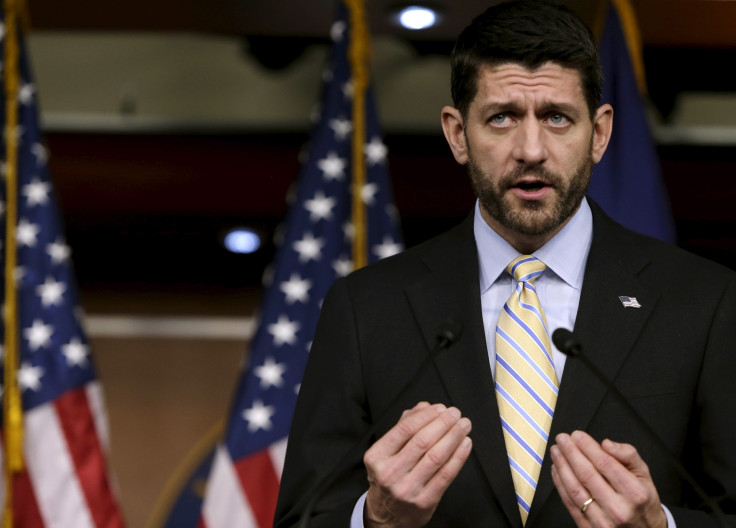Will the Government Shut Down? House Republicans May Need Democratic Help To Pass Omnibus Spending Bill

As a new day dawned in the capital Wednesday and the House of Representatives resumed the task of moving forward on the federal funding bill agreed to late the night before, signs that House Republicans weren’t all on the same page began to emerge. Some conservative lawmakers in the body told reporters that they couldn’t support the bill, while House Speaker Paul Ryan pushed back when asked if the defectors were going to cause a government shutdown.
“Look, I have no reason to believe that we’re going to have a shutdown. In divided government, you don’t get everything you want,” Ryan said during a Wednesday press briefing. “This [bill] is the result of a bipartisan, bicameral compromise. I think everybody can point to something that gives them a reason to be in favor of both of these bills.”
The House has tentatively agreed to two bills, one that revives expired tax breaks and another, a so-called omnibus bill. Omnibus bills are packaged bills made up of many smaller appropriations bills.
some House conservatives saying they can't vote for Ryan's spending bill, even with crude oil. Not blaming Ryan. But could signal trouble.
— Billy House (@HouseInSession) December 16, 2015But, not everyone was happy with what the bill contained. House Minority Leader Nancy Pelosi, D-Calif., expressed concern with the lift of a 40-year-old crude oil export ban, while other Democrats indicated that they weren’t pleased with tax cut extensions that they say will mostly benefit big businesses. Some Republican riders that conservatives hoped to add to the legislation were left out, including restrictions on Syrian refugees and an end to federal funding for Planned Parenthood. That means Democrats may need to band together with Republican leadership to pass the funding bill if enough conservative lawmakers abandon their speaker during the vote because of omissions like those.
A bipartisan team of negotiators agreed to the $1.1 trillion spending package that also prevents the Securities and Exchange Commission from requiring publicly traded companies to disclose political contributions and provide benefits to a variety of industries, according to Bloomberg. Other agreements included a temporary lift on two important Obamacare taxes, reauthorization for the 9/11 first responders healthcare insurance program, cybersecurity legislation and an overhaul of the country’s visa-waiver program, according to CNN.
The House now has until Thursday to pass the tax cuts bill and Friday to pass the omnibus, Ryan said Wednesday. Federal government funding expires Wednesday, and a stopgap measure to keep the government running until the 22nd was expected to be voted on Wednesday.
© Copyright IBTimes 2024. All rights reserved.






















